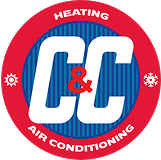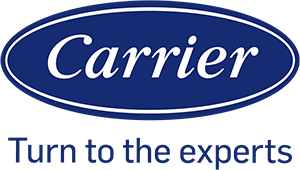Your HVAC system is the biggest energy consumer in your home. According to statistics, your air conditioner accounts for approximately 70% of your home’s energy expenses during summer and around 12% of your yearly energy expenditures.
An inefficient cooling system won’t cool your home adequately and efficiently, and you will also have higher utility bills. On the other hand, improving the AC unit’s efficiency can extend its service life and save you much money in the long run. You should therefore check your air conditioner often to ensure it’s working at optimum capacity to enjoy the benefits of an efficient unit. Here are seven different ways to tell whether your air conditioning unit is energy-efficient and ways to boost its efficiency.
1. Check the AC Filters
One of the easiest ways to determine if your air conditioner is energy-efficient is by inspecting the filters. When your filters become clogged, the debris accumulation hinders airflow, impacting your AC system’s efficiency. As a result, your unit will overwork to meet your desired temperatures and consume more energy.
If you cannot remember the last time you cleaned or changed your filters, your AC unit might not run as efficiently and effectively as it should. Experts recommend changing the unit filters at least once every one to three months, depending on the unit’s usage and your area’s pollution level. Keeping the filters clean is one of the easiest ways to keep your utility bills low throughout the cooling season and prevent efficiency problems.
2. Inspect the AC Drain Line
Another way to know if your AC is efficient is by checking the drain line. A clogged drain affects your cooling unit’s efficiency. If too much condensate collects in the unit’s drain line pan due to clogs, the air conditioning unit will turn off before attaining the preferred temperatures.
Standing water in your air conditioner also provides a favorable condition for microbial growth. Your unit will then recirculate the mold spores, triggering allergic reactions, asthma attacks, and other respiratory complications. Once you notice your AC drain line has blockages, turn off your AC and call your technician.
AC maintenance is essential in maintaining your cooling system’s efficiency. When the drain line is clean, it can easily remove moisture from your air conditioning system. As a result, it’ll be easier for the air conditioner to run, reducing overall strain and boosting the unit’s efficiency.
3. Check the Temperatures of Different Rooms
An energy-efficient air conditioning system should maintain a constant temperature in every room. If your AC loses efficiency, you’ll notice that some parts of your house will feel warmer than others. A wrongly sized AC is one of the leading causes of inconsistent temperatures in your home. If you have an oversized unit, it’ll cool your house fast and keep shutting off and on, causing temperature fluctuations.
On the other hand, an undersized unit will struggle to cool your space and might not sufficiently cool all your rooms. In such a case, allow a professional to size your air conditioner depending on the climatic condition of your area, the number of occupants, your house’s square footage, and the number of heat-emitting household appliances.
Poorly installed ductwork or leaky ducts can also cause hot and cold spots in your home. The cracks and openings allow cooled air to seep, causing the unit to cool your space inadequately. While you can quickly determine if there is an issue with your ductwork, you should allow an experienced professional to handle the problem. The expert will insulate the ducts and locate and fix the leaks. Not only does insulation make your cooling unit more efficient, but it can also make a big difference in the summer’s heating bills.
4. Check the Evaporator Coils
The evaporator coils draw out heat and excess moisture from your indoor air to allow for conditioned air circulation. Even a small layer of dust on your AC evaporator coils can impact your system’s efficiency. When clogged, the coils cannot absorb much heat, and your AC will struggle to maintain the preferred temperatures, leading to high energy bills. Sometimes, the air moisture can freeze on the evaporator coils, causing your AC unit to stop working. Call an experienced professional to clean and service your unit if you notice a dust layer or ice buildup.
5. Monitor Your Thermostat
Your thermostat reads your indoor temperature and signals the cooling unit to kick on until your house attains the desired temperature. After that, your thermostat will tell the AC to shut down. If your thermostat is inefficient, the cooling system will be inadequate too. Also, check the low power warning on the thermostat and change the batteries.
Grime may also accumulate on your thermostat, impacting its functionality. Therefore, you should dust and clean its outside cover. Sometimes, you might also experience thermostat problems due to its placement. The thermostat should be positioned more than five feet from the door and away from direct sunlight.
When positioned in direct sunlight, your thermostat will perceive the indoor temperatures as warmer and signal the cooling unit to run constantly. Call your AC expert to arrange the thermostat away from any heat source to enhance your system’s efficiency.
6. Inspect the AC Blower
The blower helps in air movement to eliminate warm air and blow conditioned air to the vents. So, a faulty blower will significantly affect your AC unit’s efficiency. On the other hand, if you see or hear the fan moving or feel the air at the top, the AC blower is appropriately functioning. Nonetheless, it might be faulty or broken if you cannot see the AC blower moving. Have your AC technician check and fix the problem to boost your cooling unit’s efficiency.
7. The Age of the Unit
As air conditioners age, they might lose efficiency due to various factors like tear and wear on their components, changes in refrigerant levels, and grime buildup in the units. Over time, the fan motors, compressor, and other essential parts of your air conditioning unit can get worn out and become less effective at cooling your air. As a result, your cooling system will have to work longer and harder to achieve your preferred indoor temperatures. When your air conditioning unit overworks to cool your space, it’ll increase energy bills and reduce efficiency.
Generally, a well-maintained and regularly serviced air conditioner can last between ten and 15 years. Nevertheless, after this duration, the unit’s efficiency might decline, and it might be time to consider upgrading to a newer, more energy-efficient system.
Partner With the Cooling Professionals to Enhance Your AC’s Efficiency
An air conditioning system is among the essential appliances in a home because of the hot summers many states in the United States experience. Energy efficiency is also an essential factor, especially to your bottom line. Keeping your AC unit efficient ensures a good balance between cost and comfort.
One of the best ways to boost your cooling unit’s efficiency is by arranging regular maintenance with a reputable HVAC technician. If you have concerns about your home’s AC efficiency, our cooling professionals at C & C Heating and Air Conditioning can help. Our technicians will inspect your air conditioner and make the necessary repairs to improve its efficiency and enhance your indoor comfort throughout the summer months.
We also offer ductless mini-splits, water heaters, smart thermostats, air quality, heating, and duct cleaning and repair services throughout Macomb County, MI, and its surrounding areas. Contact us today to learn more about AC efficiency or order any other service.





